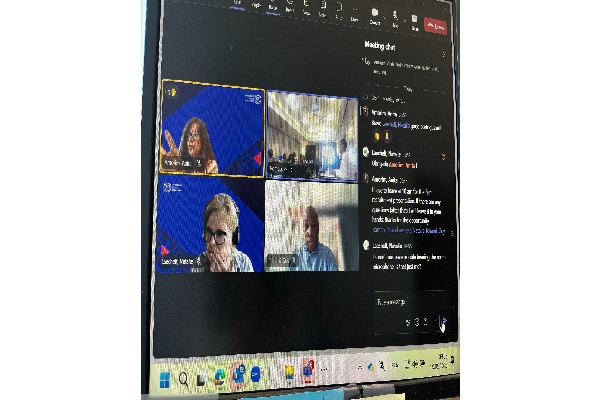
A major international seminar was held on 19 May to present and discuss the Report on the Diagnosis of the Social and Solidarity Economy (SSE) in Mozambique, bringing together policymakers, social partners, researchers, and civil society leaders from across the globe — both in person in Maputo and online in Geneva.
The event, organized under the auspices of the International Labour Organization (ILO), featured a keynote speech by Anita Amorim, Head of the ILO’s Emerging and Special Partnerships Unit. Her address, titled “South-South and Triangular Cooperation – A Vision Engaged in Decent Work and Solidarity Economy,” offered a compelling call to action to harness the power of cooperation between countries of the Global South as a catalyst for inclusive, democratic, and sustainable development.
“South-South and Triangular Cooperation is more than a mechanism of collaboration. It is a transformative instrument of social justice and a concrete response to rising inequalities,” said Amorim. “It is through solidarity — not charity — that we can reimagine development anchored in dignity, autonomy, and equity.”
Key Themes and Highlights:
🌍 South-South and Triangular Cooperation (SSTC):
SSTC has emerged as a strategic tool for enabling countries in the Global South to share experiences, technologies, and policy models in ways that are locally adapted and mutually beneficial. The event emphasized the growing alignment between SSTC and the Social and Solidarity Economy as pathways to achieve the Sustainable Development Goals (SDGs), particularly Goal 8 on decent work and economic growth.
🤝 Solidarity Economy in Action:
Real-world examples highlighted during the seminar included initiatives that combat child labor in Latin America, promote green jobs in Africa, and support food sovereignty through community-based agriculture in Brazil and across Lusophone Africa. These models underscore how SSE and SSTC together support empowerment, gender equality, and resilience in fragile contexts.
🏙️ Local Development & City-to-City Cooperation:
Participants shared successful experiences in municipal-led SSE initiatives, particularly in agroecology and urban cooperativism, demonstrating how city-level solidarity networks are reshaping local economies with community-driven values.
📈 Institutional Recognition and Normative Progress:
The seminar also spotlighted the 2022 ILO Resolution on Decent Work and the Social and Solidarity Economy (CIT.110/Resolution II), which enshrines SSE’s contribution to decent jobs, sustainable enterprises, and territorial cohesion. It calls for integrated policy frameworks, robust data systems, and inclusive strategies that embed SSE into national and global development agendas.
📚 Capacity Building & Knowledge Sharing:
The ILO’s SSE Academy was showcased as a model of global learning and exchange. Since 2010, the Academy has convened stakeholders from over 11 countries and regions, fostering innovation, peer learning, and policy dialogue through a South-South lens.
Quote from the Seminar:
“We are not passive recipients of solutions; we are their creators. The South is rising, not with dependence, but with dignity and determination. When SSE and SSTC unite, we build a world where work is decent, communities are empowered, and development is just,” — Anita Amorim, ILO.
Looking Forward: A Global Movement
The seminar concluded with a strong call to scale up investment, policy support, and international collaboration around SSE and SSTC. Participants reaffirmed the importance of strengthening networks, creating enabling environments, and deepening cooperation between governments, social partners, and communities.
This seminar marks a pivotal moment for Mozambique and other nations seeking a development paradigm rooted in solidarity and sustainability. The findings of the SSE Diagnosis Report are expected to inform national strategies and guide inclusive economic policymaking for years to come.

